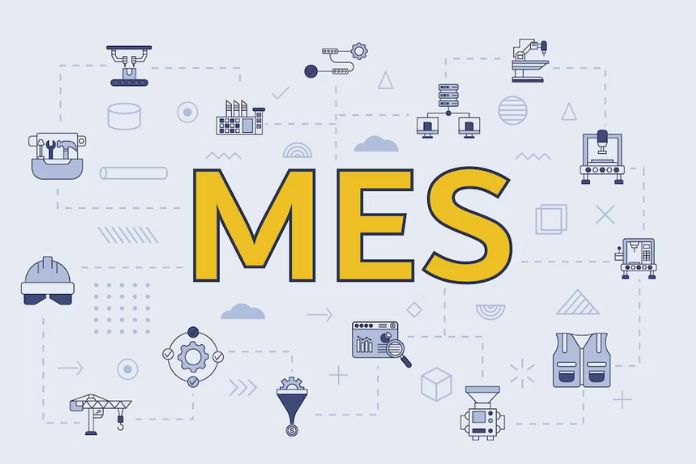Production Advancement: The Advantages Of A Modern MES

We often take production progress for granted, but what exactly does it mean? And why is it essential to monitor it? In this article, we will try to give a definition and understand how to manage it most effectively.
Table of Contents
What Is Meant By “Production Progress”?
When a production order is started in your company, it follows some well-defined and specific phases, depending on the product to be produced. For example, preparation of materials, machine setup, start of production, transfer of the product to another department for subsequent processing, etc. All these phases require a certain amount of time, which varies based on various factors, such as the quantities to be produced, the availability of materials and machines, or (alas) unexpected events during construction.
So, what is the progress of production? It indicates the state of the production process at a given moment. It answers the question “what stage is it at?” about a specific production order. And why is it important? As you will imagine, and as you perhaps already know from experience, knowing the progress of your orders is helpful for numerous reasons, in particular:
- To find out if you will respect the delivery date promised to your customer;
- To understand if you are producing efficiently in terms of time and costs;
- To have precise data to plan your production better.
Monitor Progress “The Old-Fashioned Way”
Like all things, the method for monitoring production progress has evolved. The most traditional one is undoubtedly the manual method. An employee is sent to the factory to check the status of the various orders and transcribe the data onto a document (paper or digital). Alternatively, the paper document can also be filled in directly by the operators in production at each workstation. This data is then collected and processed, typically in a spreadsheet, and subsequently analyzed by production managers and management. What are the disadvantages of this approach?
- First, the data is never updated. When the final report is processed, it returns an outdated snapshot of the production status.
- The data may be incomplete or have errors. Human error must always be considered, and it is commonplace in an activity involving transcription. Errors and omissions can result in an unreliable result or nullify the work in the worst case.
- Data collection is, for most people, a low-value activity. It would be much more helpful for the company (and rewarding for employees) to spend time on productive activities rather than writing down numbers, don’t you think?
The Technology To Monitor Production Progress
What do you do if the manual data collection method is inefficient and effective? Today, it is simple: we rely on technology. And specifically, MES (Manufacturing Execution System) systems are used to monitor production progress. On the one hand, the MES interfaces with the production machines and operators, while on the other, it communicates with the ERP and the offices.
- In production, it automatically collects data from machines in real-time, feeding a database accessible at any time.
- In the office, it allows you to prepare reports in a few minutes while also taking advantage of newly collected data. Furthermore, it offers real-time visibility into the production status, highlighting anomalies.
The MES functions allow you to avoid all the inconveniences of manual management, offering you:
- correct, updated, and complete data;
- fast information to make decisions faster;
- history of all data from which to obtain statistics and trends to understand areas for improvement;
- more time to dedicate to high-value activities;
- the possibility of providing plant personnel with helpful information for their work (production orders, goods positions, machine status, technical drawings, etc.) directly on their workstations;
- computerized data management without the use of paper (paperless).
Industry 4.0: Interconnection With Other Company Systems
MES systems fall into the category of enabling software for Industry 4.0. This means that they fit into a broader context in which the various information systems are interconnected and exchange information for optimized management of the entire company. Monitoring production progress is a vital cog in this system. It provides essential information for many other company software programs and their departments. For example:
- The ERP obtains information on the times and resources used for the various production orders. The administration will, therefore, be able to precisely calculate costs and evaluate revenues or losses, providing management with the tools to develop business strategies.
- If your planning department uses an APS (Advanced Planning and Scheduling) system, it can exploit the data collected by the MES to simulate increasingly precise and realistic production plans.
- The sales department can also benefit from progress information. If delays are expected, for example, it can intervene promptly to mediate with the customer. Or, again, you can consult them and use them to update the order status on the CRM.
Opera MES To Control Production Progress (And More)
If you think that the time has come for your company to adopt an MES system or to change the one in use, you can rely on Link Management. For over 15 years, we have successfully created tailor-made projects for manufacturing companies by implementing Opera MES. Opera is a complete, modular MES system that integrates both with the main ERPs on the market and with the less widespread ones. Opera will allow you not only to monitor production progress and collect data but also to:
- Calculate if and how efficient your production is (the OEE index);
- interconnect machinery, also from a 4.0 perspective;
- Manage the maintenance of machines and equipment;
- implement traceability for your products;
- create and manage quality control plans;
- collect data for better management control.
Also Read: How To Setup Parental Controls On The Android Play Store






